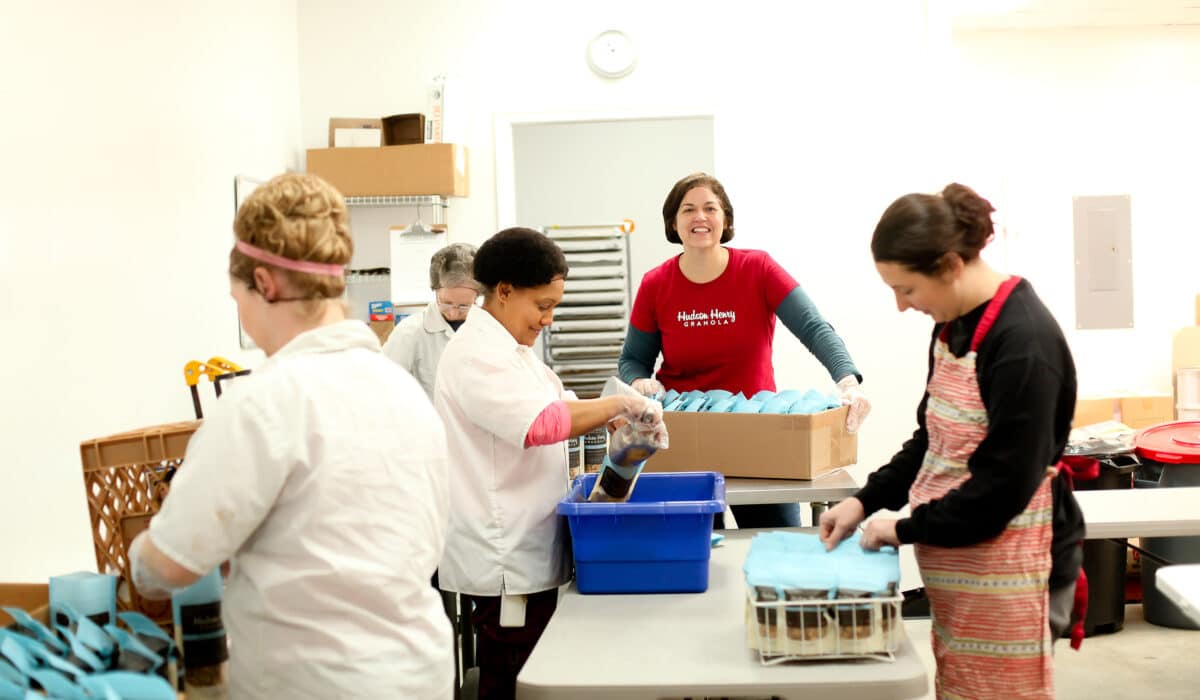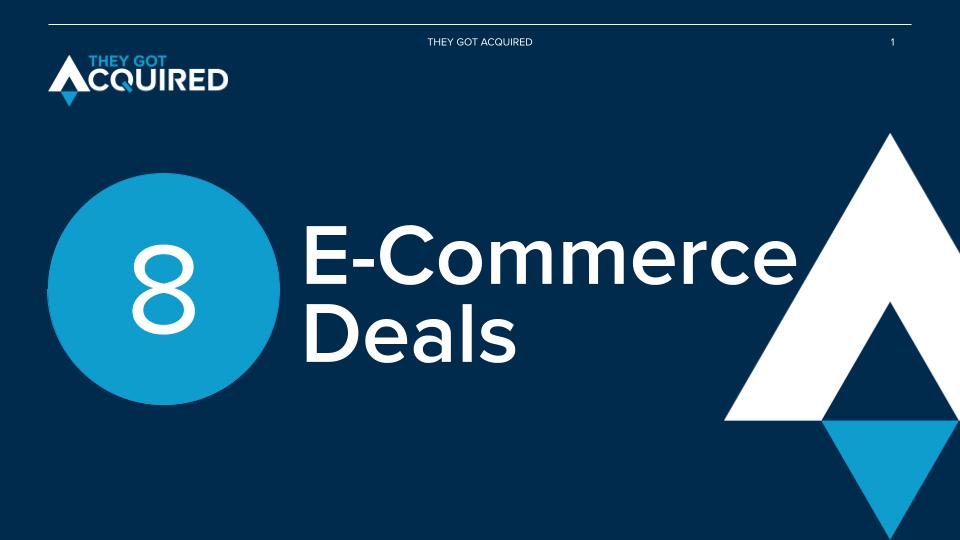Hope Lawrence remembers selling the first bag of Hudson Henry Baking Co. granola with her husband, David, at the Charlottesville City Market in Virginia.
It was 2012, and they had recently moved to a small Virginia town with their two boys — company namesakes Hudson and Henry, ages 5 and 2. Their home, an 1830s former bed and breakfast, featured a commercial kitchen in the basement.
For Hope Lawrence, the kitchen felt like a sign to pursue her dreams of starting “some sort of bakery,” she recounted on her website, Small Batch Empire.
She told They Got Acquired she chose to bake granola because it’s easy to make, store and ship. Unlike cookies or brownies, it doesn’t break.
A few months after that first sale, the “light, fresh and crisp” small-batch granola landed in mid-Atlantic Whole Foods stores. Then, before the company’s one-year anniversary, it earned a spot on the Today Show’s “Favorite Things” segment. Lawrence said this was “huge” for the company’s direct-to-consumer sales.
A decade later, the self-described “tiny granola company” sold for 7 figures.
A family granola business grows to $1 million in annual revenue
For the first year, Lawrence ran the business. She leaned on her years of product development experience, including six years at Standard & Poor’s in New York City and nearly two years at Fitch Rating in London.
Her biggest challenge was baking enough granola while caring for the boys and battling “mom guilt.” After about a year, she revealed to a consultant that she was bagging granola until 1 a.m. He urged her to hire someone to help, so she took his advice.
At one point, about 10 part-time employees worked from the family’s basement. In 2016, Hudson Henry Baking Co. officially moved into a commercial space. At sale, Lawrence had about 12 part-time employees, including stay-at-home moms, retirees, college kids and high school work/study students.
“We were not huge by any means — just very lean ops-wise — and had great customers,” she said.
For example, she would time how long it took for someone to bag a barrel of granola — about an hour. If they had 12 barrels to bag, she knew she needed 12 work hours scheduled.
“We would just keep an eye on production and try to match the schedule as best as we could,” she said. “Part-time was really needed as it’s hard to stand on concrete for more than four or five hours.”
Hudson Henry granola was sold in hundreds of stores nationwide. Consumers could also buy it through an online shop, powered by Shopify, and subscribe to recurring shipments. Lawrence said her conversion rate on Shopify was around 11%. For context, in 2022 Shopify reported the average conversion rate for online stores on its platform was 1.4%.
About 75% of her sales were wholesale and about 25% were online, through Shopify and Amazon. She estimated about 40% of the online sales were recurring, which “was definitely a plus for the business” when it came time to sell.
“I always said the company could have been thissss big,” she recounted, “but with two young boys, I had to decide what was big enough. My goal from day one was $1 million in annual revenue. That was enough for me.”
Lawrence shared on Small Batch Empire that she officially hit her $1 million revenue goal in 2020.
Hudson Henry Baking Co. makes a 7-figure deal
When Lawrence turned 50, she was ready for a change.
“I knew if I was going to have another career, I needed to do it before I got much older,” she said. She had ideas for new projects up her sleeve.
She found her buyer, Cherries & Berries LLC, through Vista Business Brokers. Lawrence liked Cherries & Berries LLC because they had experience working with food companies. They also loved the granola and shared exciting ideas to grow the company.
In April 2022, Hudson Henry Baking Co. sold for 7 figures. Lawrence said it sold at 5x-6x net annual income, which she said is average in the food industry. Lawrence described the sale as emotional, saying, “it was tough to think about selling.”
Now, she’s working on Small Batch Empire, where she provides resources to founders of small-batch food businesses. She’s also writing a book about her experience to help guide other food entrepreneurs and makers.
“I find that not many people will give details on how to do things,” she said. “I am going to give the details.”


